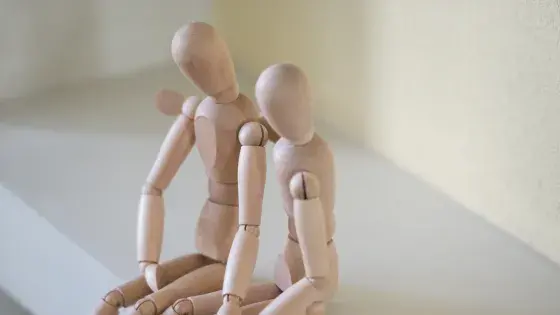Loneliness is a common emotion that can be experienced by anyone, regardless of age, gender, or status, and it can be caused by a variety of factors. The feeling of loneliness is personal, so everyone’s experience will be different – characterised by its intensity, or how strongly it is felt, which can change from moment to moment and over different durations of time.
The feeling may arise when our need for rewarding social contact and relationships is not met. Yet, loneliness is not always the same as being alone - you may choose to be alone and live happily without much contact with other people, while others may find this a lonely experience. Alternatively, you may have lots of social contact - or be in a relationship or part of a family - and still feel lonely. This is especially if you don't feel understood or cared for by the people around you.
Tips for dealing with loneliness
-
If you've felt lonely for a long time, it can be daunting to meet or open up to new people; however, there is no rush. You could try an online activity to start off with or be a spectator and then later join in.
- Reach out – there is a lot of support out there from people just like you; people who use their own experiences to help and support each other, including experiences of loneliness and related mental health problems. Take a look at Side by Side https://www.mind.org.uk/information-support/side-by-side-our-online-community/
- Get out there and meet people. Try to join a class or group based on your hobbies or interests. This could include online groups if you can't attend things in person. Alternatively, volunteering is a good way of meeting people. Helping others can also really help improve your mental health. Check out Do-it https://doit.life/
- Talk about it: have you told people you feel lonely? Others may not realise how you feel. Alternatively, you could speak to a helpline such as the Samaritans, who provide impartial advice https://www.samaritans.org/
- Talking therapies or counselling allow you to explore and understand your feelings of loneliness and can help you develop positive ways of dealing with them. Explore more https://www.mind.org.uk/information-support/drugs-and-treatments/talking-therapy-and-counselling/how-to-find-a-therapist/
- You are enough: you don’t need to compare yourself to others – in fact, they may be putting on a front and be loneliness themselves.
- Look after you: get enough sleep, eat your five a day and do some physical activity – you might even meet people. Try to spend time in nature or volunteer at an animal shelter. And avoid drugs and alcohol – they may seem like a short-term fix but can make you feel worse and more isolated in the long term.
References:

